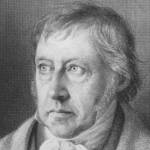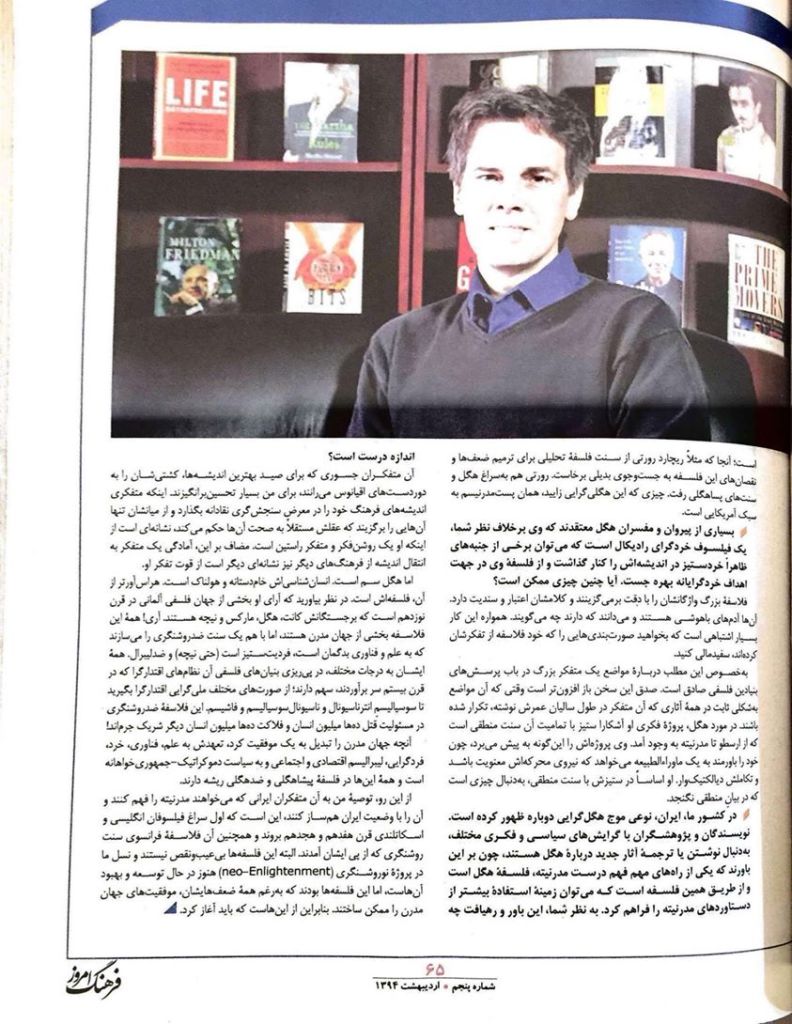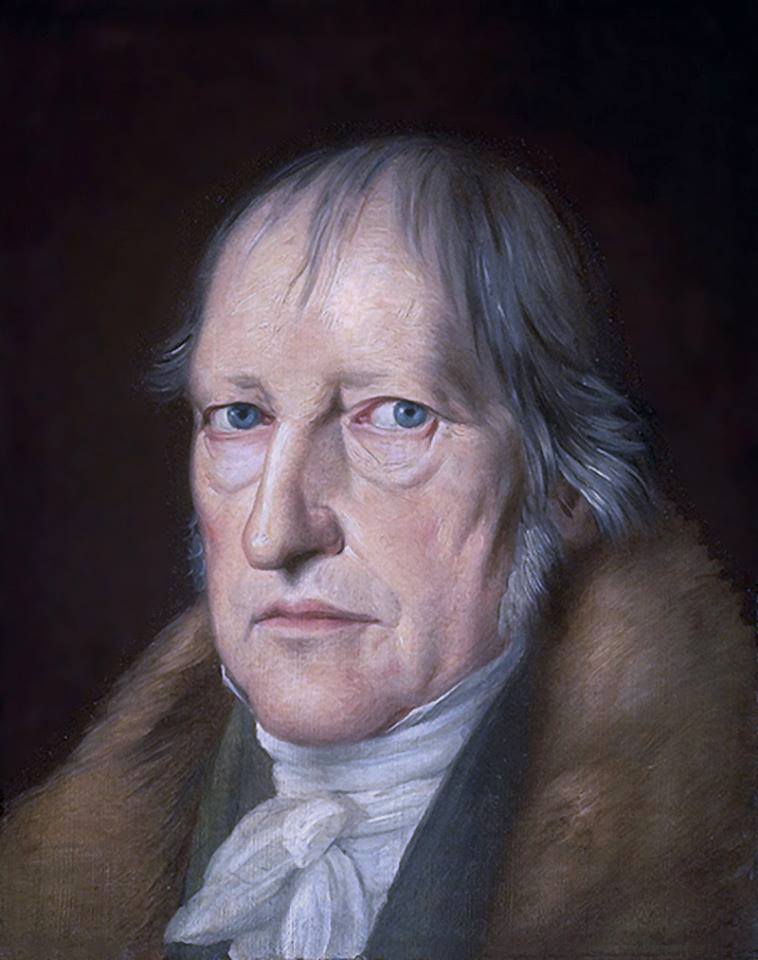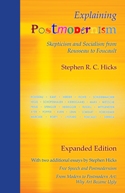In your book Explaining Postmodernism: Skepticism and Socialism from Rousseau to Foucault, you portrayed Hegel as a great force of irrationalism, whose philosophy has contributed immensely to deteriorating rather than improving the human condition.
The philosophy of Hegel has been on the rise in Iran in recent years. The idea behind this rising wave has been that understanding Hegel is imperative for a society in transition from tradition to modernity.
So in this interview we would like to learn more about your views on Hegel.
1. The first question we would like to ask is the one that Benedetto Croce has once asked: “What is living and what is dead of the philosophy of Hegel?”
Stephen Hicks: There is a resurgence across the board of interest in the great philosophers. In large part this is driven by the emptiness of much twentieth-century philosophy, as many of its major movements reached skeptical dead ends. So our generation is looking for renewed inspiration by returning to the greats, Hegel included.
2. What, in your opinion, is the reason behind the recent comeback of the Hegel’s ideas, and the efforts to marry them with such schools of philosophy as you, for example, may subscribe to?
Stephen Hicks: Hegel’s philosophy is a halfway house, partly modern and partly pre-modern. And he is a systematic thinker, with argued positions on all major issues. So contemporary thinkers can find elements in Hegel’s writings that fit with almost any overall philosophy they find attractive.
My views are liberal socially, economically, and politically. But Hegel is one of the major authoritarian political philosophers. So it is irritating when I read those who try to give softer readings of Hegel. Typically that occurs by taking a political point he makes out of its fuller philosophical context.
For example, one can read Hegel saying favorable things about finding yourself through freedom. That sounds very modern and liberal politically. But to interpret properly one must connect such statements to his deeper views: that one’s self is but an aspect of the collective, that the Divine works through collective self-realization, and that the State is the manifestation of the Divine.
So, in full context, “finding yourself” ends up meaning “doing what the State tells you” – which is anti-liberal and in keeping with the rest of Hegel’s political philosophy.
3. What’s interesting about Hegel is the fact that his new followers, these days, aren’t necessarily coming from a particular philosophical tradition (e.g., German, continental) but a variety of traditions. What would you say that variety signifies?
Stephen Hicks: That has always been true of Hegel’s followers. In the 1800s, many Russians saw their country’s intellectual traditions as backward and went to the modern West for new approaches. To them, Germany looked like the West. So they went to German universities and brought German philosophy — especially Kantian, Fichtean, Hegelian, and Marxist — back to Russia. We know how that turned out for Russia in the 1900s.
The same is true of many Japanese intellectuals in the late 1800s and early 1900s, as Japan opened to the West and wanted to modernize. Many went to Germany and returned home with Hegelianism and contributed to the militaristic, nationalistic authoritarianism that developed there in the first half of the twentieth century.
In my judgment, all of those thinkers should have looked further West — to English and Scottish Enlightenment philosophy, as well as to some French Enlightenment philosophy, for the healthier form of dynamic modernism.
The pattern also continued in the 1900s, as Americans such as Richard Rorty came out of the Analytic tradition and were seeking alternatives to its failings. Rorty also returned to Hegel and the post-Hegelian traditions that followed. We know that results in American-style postmodernism.
4. Many of Hegel’s proponents and followers would argue that, contrary to your view, Hegel is a radical rationalist, if one would look past some of the so called anti-rationalist rough edges of his ideas. In fact his philosophy may be used as means to achieve one’s rationalist ends. Is that likely, or rather possible?
 Stephen Hicks: One should always take great philosophers at their word. They are smart people and they know what they are saying. It is always a mistake to whitewash their published formulations.
Stephen Hicks: One should always take great philosophers at their word. They are smart people and they know what they are saying. It is always a mistake to whitewash their published formulations.
That is especially true on a thinker’s fundamental positions in philosophy — and especially when those stated positions are constant theme across the thinker’s many works over the course of many years.
In Hegel’s case, he is explicitly attacking the entire tradition of logic as it had developed from Aristotle to modernity. And he is doing so because he wants to believe in a kind of spiritually-driven, dialectically-evolving metaphysics that cannot be expressed logically.
5. We’re currently facing a new wave of Hegelism in Iran. Scholars and intellectuals alike with different back-grounds and political or academic persuasions, are looking to write and translate new material of and about Hegel. They are convinced that Hegel is one of the keys to properly understand modernity, and that his philosophy can help to find better use of modernity. How much, would you say, this belief has merit, and does Hegel’s philosophy have anything to say about non-European cultures and countries?
Stephen Hicks: I applaud those courageous thinkers who seek far and wide for the best ideas. It is the mark of being a true intellectual when one is open to critically examining one’s own culture’s ideas and accepting only those one independently judges to be true. And it is a strong sign of being a real intellectual to be willing to import the best ideas from other cultures.
But Hegel is a poison. His anthropology is awful and embarrassing.
But more dangerous is his philosophy. Consider that his views are part of an 1800s German philosophical world in which the leading names are Kant, Hegel, Marx, and Nietzsche. All of them are part of the modern world, but make up a Counter-Enlightenment tradition that ends up being suspicious of science and technology, anti-individualistic (even Nietzsche), and anti-liberal. They all contributed in varying degrees to the authoritarian regimes that developed in the 1900s – the various forms of authoritarian nationalisms, the national and international socialisms, the fascisms — and that were responsible for the deaths of tens of millions of people and for the misery of tens of millions more.
What made the modern world a success was its commitment to science, technology, reason, individualism, social and economic liberalism, and democratic-republican politics. And those have their roots in pre-Hegelian and anti-Hegelian philosophy.
So for those intellectuals who want to understand modernity and adapt it to Iran’s context: first look to the English and Scottish philosophers of the 1600s and 1700s, as well as to their followers among the French philosophes of the Enlightenment. Their philosophies were imperfect, and improving and extending them is the current neo-Enlightenment project that our generation is working on. But for all their weaknesses, they did make possible the modern world’s successes. So they are the essential place to start.
[END OF INTERVIEW]
More information on editions and translations of Explaining Postmodernism: Skepticism and Socialism from Rousseau to Foucault.
Update May 18, 2015: Courtesy of Mohamad Machine-Chian, here is an image of the original publication in Farsi:



Good interview. Of all the philosophies to follow, Hegel would be disastrous for Iran. In a way, as you said, those seeking understanding about philosophy, are the best hope for Iran. I notice that many pick bits and pieces of Hegel and Kant’s philosophy, and then say they are arbiters of freedom?!?!?! I am dumb struck by that. I thought maybe I was reading their books incorrectly. I took what they said at face value.
From my own research about the Iranian Revolution, I noticed that there was a strong Marxist bent to the Shah’s opposition. Foolishly they hitched their wagons to the Islamic terrorists. They ended up being the first ones executed by Khomeni. This has had tragic consequences we are dealing with today. I just hope they are also reading Aristotle and Rand. Wishful thinking?
Really good: a critically important caveat. Forwarded this to a number of Middle Eastern, including Iranian friends. It was the ideologies right and left that sprouted from Hegel’s thought that brought down the Middle East’s prodigious drive to modernize.
Yes Scherie, The People’s Mujahedin, a Marxist and revolutionary Shia party, and the Tudeh Party, Iran’s communist party, sided with Khomeini against the Shah. But following the revolution of 1979 both fell out of favor with the clerical regime and within Iran were dismembered by it. The People’s Mujahedin remains Iran’s largest opposition party in exile, but doesn’t inspire a broad based loyalty among disaffected Iranians today.
“The Third World” said Hannah Arendt, “is not a reality but an ideology.” I think it’s a reality created by ideology. A notable influence on Mujahedin doctrine was the thought of Ali Shariati (1933 – 1977), one of 20th century Iran’s most influential intellectuals. Educated at the Sorbonne in Paris (as was Michael Aflaq, founder the Arab Socialist Ba’ath Party which produced Hafez Assad and Saddam Hussein), Shariati sought to fuse the Marxism he found there with Islamic puritanism and reformation, becoming a seminal figure of the Third-Worldism movement associated with Pan-Africanism, Pan-Arabism, African socialism, Arab socialism, Maoism and communism. Nothing in my opinion has done more to ensure the reality of the Third World remained such.
Shame to get such a lame interviewee for such an exciting topic! Uses ‘anti-liberal’ as a coded buzzword, poor form for a philosopher though great for a demagogue.
For example:
“…that one’s self is but an aspect of the collective, that the Divine works through collective self-realization, and that the State is the manifestation of the Divine.
So, in full context, “finding yourself” ends up meaning “doing what the State tells you” – which is anti-liberal and in keeping with the rest of Hegel’s political philosophy.”
This age-old and feeble accusation against Hegel as an authoritarian (highly controversial stance, though not here such presented) trades here on an equivocation of what the State might be in a superficial conception and what proper meaning in Hegel’s works are – the perception of anti-liberalism dilutes or disappears when you gain a better understanding of what ‘State’ means in Hegel.
“Science, technology, reason, individualism, social and economic liberalism” – all also fruits of Hegel’s work and other idealists, so this interviewee, who nonetheless has some understanding of the topic, is trying to map out a divide and political position where one does not exist.
Dear Arch: Your comment stops halfway through. When you say “the perception of anti-liberalism dilutes or disappears when you gain a better understanding of what ‘State’ means in Hegel” — which is your central claim — you have an obligation to explain why the proper interpretation of Hegel is the opposite of what his words seem to say.